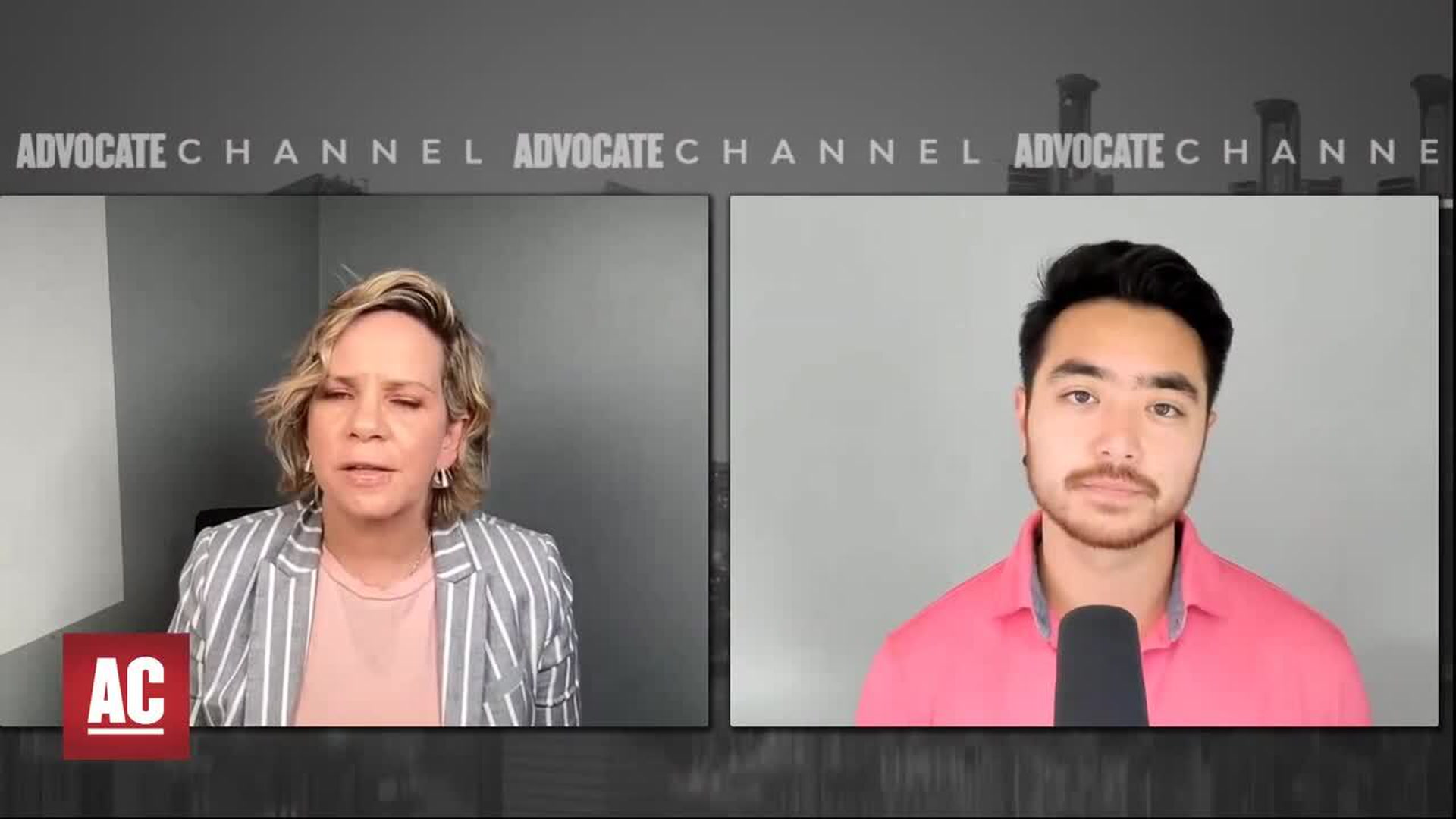Toxic masculinity embodies multiple guises, mostly selling itself as the ticket to fitting in. And, in my experience, I’ve observed something surprising: engaging in toxic masculinity is not about impressing or courting women but rather is about impressing and fitting in with other men.
I have often commented that my life has felt like a gender studies class. Never quite fitting in anywhere gave me the privilege of watching from the outside in. When I was a kid, the boys who’d previously been my friends suddenly ditched me, as well as other girls, when they realized that their friendships with us were harmful to their social status among the other boys. I listened as they said degrading things and laughed at horrible jokes around other boys but had been previously very kind and protective of me and others.
Watch: Schuyler Bailar talks gender identity and new book
Sadly, I saw these behaviors continue throughout my college years. I observed as guys would wait and watch for each other’s reactions to their jokes, their oversteps, their comments about women—the insecurity and yearning for approval from other men was painfully obvious to me. My suspicions were affirmed twofold: First, I started to find that I felt pressured to engage in what I knew were toxic behaviors, and I witnessed firsthand how doing so could have earned my entry into the mix. Second, as I grew closer with other men in college, I learned that my experience was not unique. Many of my friends who are also men have reported sharing similar feelings.
It is no coincidence that men are far less likely than women to access any kind of mental health resources, including therapy and medication; that men account for 90 percent of domestic violence; and that the demographic most likely to die of suicide are middle-aged white men. While suicide is the twelfth leading cause of death for the U.S. population as a whole, it is the seventh leading cause for men. In 2020, men were nearly four times more likely to die by suicide than women.
Toxic masculinity begins with a deep and inherently human yearning to belong and can end up stripping us of our humanity. As I see it, the most insidious, prevalent, and thereby dangerous toxic masculinity is not solely the violence, murder, or rape, but also the shame and isolation smaller behaviors inspire.
“Man up,” “Grow a pair,” “Be a man,” “Boys don’t cry,” “Grow up,” “Stop acting like a girl,” “Don’t be a pussy.” These are the seeds for violence and destruction, beginning first with young boys and infecting everyone else.
So am I arguing that cis white straight men are an oppressed group in society? No, not exactly.
Free-speech radicalists, as they call themselves, like aforementioned Canadian psychologist and media personality Jordan Peterson, have argued that society is stupid and “alienating young men,” as he told the BBC. “We’re telling them that they’re patriarchal oppressors and denizens of rape culture. It’s awful. It’s so destructive. It’s so unnecessary. And it’s so sad.” Although I am sure extremists exist who claim cis white straight men are the sole problem, in reality, Peterson’s assertions are incomprehensive.
Demanding accountability from men is not awful or destructive; it is absolutely necessary. But, the problem is not cis men; it’s patriarchy, misogyny, and transphobia. The problem is not straight men; it’s homophobia. The problem is not white men; it’s white supremacy. Understanding these distinctions is crucial to dismantling the systems.
Toxic masculinity and trans masculinity
As a transgender man, I have been both a victim of misogyny and toxic masculinity, as well as someone who is now expected to—and sometimes demanded to—be an active participant in perpetuating these systems of oppression. As a result, I, along with other trans masculine folks, have a unique perspective from which we can inspire others to challenge patriarchy and toxic masculinity. We are positioned in a way that lends us power. Although I fought hard to be heard when I was presenting as a woman, I often failed to garner respect from other men. This is not uncommon; men are far more likely to listen to other men—which returns us to my earlier assertion that the performance of toxic masculinity is for other men, in seeking approval, admiration, acceptance, and even love from other men.
I have decided to step into that and use the privilege I have of being read as male—and my voice therefore deemed valuable—to gather other men on this journey toward gentle masculinity and more wholesome humanity. And I encourage other men to do the same.
I regularly receive comments from other men that read, “You can’t just say you’re a man,” or, “You’re not a real man,” or, “You can’t just get surgery, that will never change who you are!” And while other facts of ignorance influence these statements, what I recognize most is insecurity.
The roots of these statements run far deeper than simply not believing in my manhood—if that was the only reason, I struggle to understand why they would be so angered. If the only problem is that I am not man enough for them, so what? This does not pose a true problem or threat to another person unless they have attachments to a specific type of manhood. Which they do. In truth, I expect that my manhood is disturbing not because other men don’t approve of it but rather because it begs of them the necessity to define manhood altogether. And most cis individuals have not been asked to explain the validity of their gender beyond the appearance of their genitals at birth, while trans individuals, by definition, must. Though not formal, the truth of transness can be an invitation to question one’s gender, and thereby question facets of the reality a person has accepted as fact.
This invitation is unfortunately often rejected. It is frightening—and far easier to denigrate the trans person than it is to step into the questions. Doing so first requires the faith that a person is more than their gendered experience of the world. It then demands undoing all the harmful behavior that we have learned to survive, and we can begin doing so through rejecting toxic masculinity.
Excerpted from He/She/They: How We Talk About Gender and Why It Matters by Schuyler Bailar. Copyright © 2023. Available from Hachette Go, an imprint of Hachette Book Group, Inc.














































































